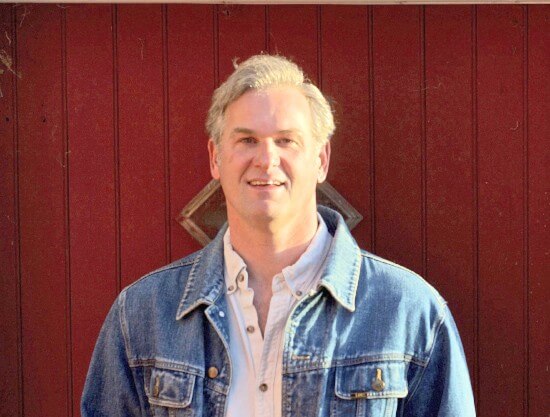Vermont to the Tenth Power: A town-wide conversation with Stephen Kiernan on Jan. 26

This past June, Charlotte author Stephen Kiernan posted an essay on his website titled, “Vermont to the Tenth Power: How a Small State Thrives in a Time of Federal Collapse.” In it he argues that, given the rancor and gridlock in Washington, D.C., we Vermonters should look to the power reserved to the states in the Tenth Amendment of the Constitution [see sidebar] and strive, both here in Vermont and alongside other likeminded states, to “shield our state from the worst of Washington’s difficulties, to learn from other states, and to strengthen Vermonters’ capacity to determine our own fate.”
To kick off this VT10th project, The Charlotte News, the Charlotte Library and the Charlotte Grange are co-sponsoring a community conversation with Kiernan at Grange Hall on Sunday, Jan. 26, from 2:00 p.m. to 3:30 p.m., to talk about the ideas he expresses in his essay, which can be read in its entirety at his website. Refreshments will be provided by the Grange.
In 1932, U.S. Supreme Court Associate Justice Louis Brandeis famously said this about the role of the states in the American democracy: “A state may, if its citizens choose, serve as a laboratory; and try novel social and economic experiments without risk to the rest of the country.” Many such “experiments”—including women’s right to vote and the rights to interracial marriage, to abortion and to same-sex marriage, to cite only a few—all began in the states before becoming federal law.
With regard to same-sex marriage, Vermont in particular, played a crucial role: After Massachusetts legalized same-sex marriage by court action in 2004, Vermont in 2008 became the first state to legalize same-sex marriage by legislative action. And after dozens of states followed suit in the following years, the U.S. Supreme Court in 2015 held same-sex marriage to be a federal constitutional right.
States around the country are right now acting on their Tenth Amendment powers. Here are just a few recent examples:
- Illinois legalized marijuana starting on Jan. 1 of this year, and the governor immediately granted more than 11,000 pardons for those previously convicted of low-level marijuana crimes, making it easier for them to get jobs, housing and college financial aid.
- Twenty-four states, including Vermont, and 48 cities and counties have raised their minimum wage rates in 2020, some states to as high as $13.50 an hour (Vermont’s new rate is $10.96). Congress has left the federal rate unchanged since 2009 at $7.25 an hour.
- In 2019 New York became the third state to eliminate cash bail for most misdemeanor and nonviolent felony offenses, which means that poor people will no longer serve jail time because they can’t pay their bail. Most people charged with misdemeanor and non-violent felonies are now automatically released.
- California, over the objections of the NCAA and collegiate athletic administrators across the country, enacted a law allowing college athletes in the state to pursue endorsement deals and to profit from the use of their name and images when the law goes into effect on Jan. 1, 2023.
- New Hampshire became the sixth state last year to legalize statewide sports betting. The new law is expected to generate $7.5 million in 2021 for educational programs and $13.5 million by 2023.
In 2019 nine states passed abortion restrictions that could challenge the constitutional right established by the Supreme Court in Roe v. Wade. Meanwhile in Vermont, Governor Phil Scott signed into law a sweeping no-limits abortion bill, creating a “fundamental right” to the procedure, and the Legislature is acting on an amendment to guarantee “personal reproductive liberty” as a protected right under the state constitution; the measure will have to be passed again by the 2020 state legislature and then approved by the voters on the 2022 ballot.
Join us on Sunday, Jan. 26, to talk and exchange ideas with Kiernan about what “We, the people” can do in Vermont—and in Charlotte—to, as he puts it at the end of his essay, “exchange the frustrations of Washington with the gratification of taking greater responsibility for our own lives, our shared communities, our home.” See you on Sunday afternoon, Jan. 26, at Grange Hall, 2898 Spear Street in beautiful East Charlotte.

